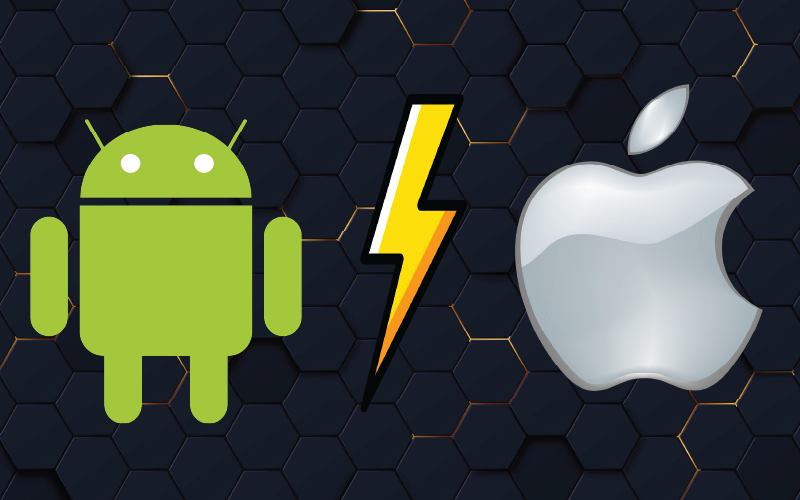Introduction:
The perpetual rivalry between Android vs iOS continues to shape the landscape of the smartphone industry. As both operating systems strive for innovation and user satisfaction, it’s essential to delve into the latest features and user experiences offered by Android and iOS.
User Interface and Customization:
Android, known for its open-source nature, provides users with a higher degree of customization. The latest Android versions boast customizable home screens, widgets, and the ability to install third-party launchers. On the other hand, iOS maintains a sleek and uniform design, offering a more consistent user experience across devices. The simplicity of iOS appeals to users who prefer a more straightforward and intuitive interface.
App Ecosystem:
The app ecosystem is a crucial factor in the Android vs. iOS debate. While both platforms offer a vast array of applications, iOS has historically been the preferred choice for developers launching their apps first. However, Android has made significant strides, closing the gap and expanding its app library. The Google Play Store now rivals the Apple App Store in terms of quantity, offering a diverse selection for users on the Android platform.
Integration with Ecosystem:
Apple has a distinct advantage in terms of ecosystem integration, with seamless connectivity between iOS devices, Macs, iPads, and wearables. The Apple ecosystem allows users to start a task on one device and seamlessly continue it on another. Android, while improving in this aspect, may not offer the same level of integration across devices, as it caters to a more diverse range of manufacturers.
Privacy and Security:
Both Android and iOS have prioritized privacy and security in their latest updates. Apple, in particular, has emphasized user privacy, introducing features like App Tracking Transparency that gives users more control over app permissions. Android has also enhanced its security features, with regular updates and improvements to its permissions system. The battle for user trust and data protection is a critical aspect of the ongoing competition between the two platforms.
Updates and Fragmentation:
One of the challenges for Android has been the fragmentation resulting from the diverse range of manufacturers and devices. While Google has made efforts to streamline updates with initiatives like Project Treble, iOS still holds the upper hand in delivering timely updates directly to all supported devices. This ensures that iOS users receive the latest features and security patches simultaneously, providing a more uniform experience across the platform.
Voice Assistants and AI Integration:
Both Android and iOS have invested heavily in artificial intelligence (AI) and voice assistants. Google Assistant, integrated into Android devices, utilizes Google’s powerful AI capabilities, providing a comprehensive and context-aware assistant. iOS boasts Siri, which has improved over the years but may not be as deeply integrated into the user experience as Google Assistant on Android.
Conclusion:
The Android vs. iOS battle remains a dynamic and ever-evolving competition, with each platform continually pushing the boundaries of innovation. Android excels in customization and offers a diverse range of devices, while iOS provides a more streamlined and integrated experience across Apple’s ecosystem. The choice between the two ultimately comes down to personal preferences, priorities, and the specific features that matter most to users. As both platforms strive to outdo each other in terms of user experience, the never-ending battle continues to benefit consumers by fostering innovation and pushing the boundaries of what a smartphone can offer.

